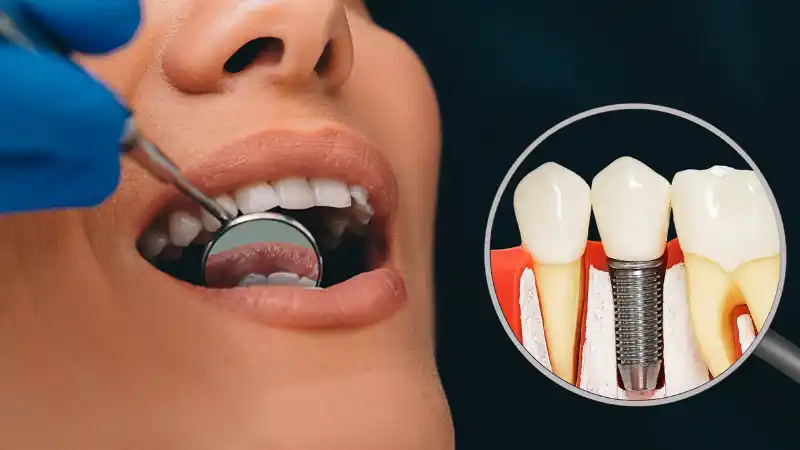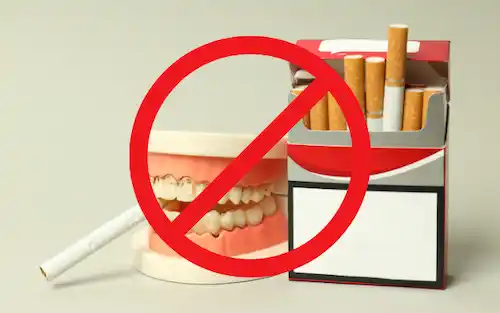Congratulations on your new dental implants! Dental implants are a fantastic investment in your oral health, providing a long-lasting and natural-looking solution for missing teeth. Now that you have your dental implants, it’s important to prioritize their care and maintenance to ensure their success and longevity.
In this article, we will explore essential tips and guidelines for proper dental implant aftercare, empowering you to maintain optimal oral health and make the most of your new smile. By following these tips, you can enjoy the benefits of your dental implants for years to come while preserving your oral health and overall well-being.
Let’s dive into the world of dental implant aftercare and discover how you can keep your new teeth shining bright.
Importance of Dental Implant Aftercare
Proper aftercare is crucial for the health and longevity of dental implants. After investing in dental implant surgery, establishing a thorough aftercare routine is essential for successful healing and optimal oral health.
Consistency and commitment to aftercare practices minimize the risk of complications and contribute to the long-term success and durability of dental implants. Following proper aftercare protocols ensures that you can enjoy the benefits of your dental implants for years to come.
Basic Post-surgery Instructions to Follow After The Implant Procedure
- Avoid spitting for the first 24 hours after surgery to promote proper healing and prevent dislodging the blood clot.
- Apply ice packs to the surgical area intermittently for the first 48 hours to reduce swelling and discomfort.
- If you experience mild gum pain, take painkillers like Ibuprofen or the medications prescribed by your dentist or oral surgeon.
- Stay hydrated by drinking plenty of fluids, and follow a diet of easily swallowed foods to support healing.
- Refrain from consuming alcohol or smoking for at least 5 days after the dental implant surgery to facilitate healing and minimize complications.
- Take it easy and avoid engaging in heavy physical activities or exercise for 3 to 4 days, as reduced diet and fluid intake may lead to temporary weakness or dizziness.
- Refrain from touching the surgical area with your fingers or tongue to prevent infection and disruption of the healing process.
Dental Implant Aftercare Guide
-
Oral Hygiene Practices for Dental Implants
- Brush your teeth at least twice a day using a soft-bristle toothbrush and non-abrasive toothpaste.
- Pay extra attention to the implant areas, ensuring gentle but thorough cleaning.
- Clean all surfaces of the teeth, including the implant crowns or prosthetic teeth.
- Use small, circular motions to clean around the implant posts and along the gumline.
- Consider using an electric toothbrush with a rotating or oscillating head for more effective plaque removal.
- Replace your toothbrush or brush head every three to four months or as recommended by your dentist.
-
Brushing Techniques for Dental Implants
- Hold your toothbrush at a 45-degree angle and use light pressure.
- Brush in gentle, circular motions to clean the teeth and implants effectively.
- Ensure that the bristles of the toothbrush reach the gumline to remove plaque thoroughly.
- Pay attention to the back of the last tooth and the areas around the implants.
- Brush for at least two minutes, spending equal time on each quadrant of your mouth.
- Avoid brushing too forcefully to prevent gum recession and damage to the implant structures.
-
Flossing and Interdental Cleaning for Dental Implants
- Use unwaxed or implant-specific floss to clean between the implant and adjacent teeth.
- Gently insert the floss, curving it around the implant post in a C-shape.
- Slide the floss up and down while being careful not to snap it forcefully.
- Consider using interdental brushes or water flossers to clean between the implants and along the gumline.
- Use interdental brushes specifically designed for implants to ensure effective plaque removal in hard-to-reach areas.
- Consult your dentist for personalized recommendations on interdental cleaning tools and techniques.
-
Using Mouthwash and Oral Rinse for Dental Implant Care
- Choose an alcohol-free, antimicrobial mouthwash recommended by your dentist.
- Rinse your mouth for the recommended duration after brushing and flossing.
- Swish the mouthwash around your mouth, ensuring it reaches all areas, including the implant surfaces.
- Spit out the mouthwash after rinsing, and avoid rinsing with water immediately afterward to allow the antimicrobial agents to remain in contact with your teeth and implants.
- Follow the instructions provided by the manufacturer or your dentist for the frequency and duration of mouthwash use.
- Consult your dentist for specific recommendations based on your unique oral health needs.
-
Regular Dental Check-ups and Cleanings
- Schedule routine visits with your dentist, usually every six months or as recommended.
- Professional cleanings will be performed to remove plaque and tartar buildup around the implants.
- Your dentist will examine the health of your gums, check for any signs of inflammation or infection, and evaluate the stability and integrity of your dental implants.
- X-rays or other imaging techniques may be used to monitor bone levels and detect any potential issues.
- Regular check-ups help identify and prevent potential problems early on, ensuring the long-term success and stability of your dental implants.
-
Dietary Considerations for Dental Implant Aftercare
- Consume a well-balanced diet rich in nutrients, including fruits, vegetables, lean proteins, and whole grains.
- Incorporate foods that are beneficial for oral health, such as dairy products, leafy greens, and foods high in vitamin C.
- Limit your consumption of sugary and acidic foods and beverages, as they can contribute to tooth decay and gum problems.
- Avoid excessively hard or sticky foods that can put undue stress on the implants or compromise their stability.
Avoid hard foods after your dental implant procedure - Stay hydrated by drinking plenty of water, as it helps maintain saliva production and rinses away food particles and bacteria.
- Consult with your dentist or a nutritionist for personalized dietary recommendations based on your oral health needs.
-
Avoiding Tobacco and Limiting Alcohol for Dental Implant Health
- Quit smoking or refrain from tobacco use, as smoking delays the healing process and increases the risk of implant failure.
- Avoid all forms of tobacco, including cigarettes, cigars, pipes, and smokeless tobacco products.
- Limit alcohol consumption, as excessive alcohol intake can impair the body’s natural healing process and increase the risk of implant-related complications.
- If you need assistance with smoking cessation or reducing alcohol consumption, consult with your healthcare provider for guidance and support.
- Adopting a tobacco-free and moderate alcohol consumption lifestyle significantly contributes to the long-term health and success of your dental implants.
-
Managing Discomfort and Pain after Dental Implant Surgery
It is common to experience some discomfort and pain after dental implant surgery. Your dentist may prescribe pain medications or recommend over-the-counter pain relievers to manage any discomfort during the healing process.
- Follow your dentist’s instructions carefully regarding medication dosage and frequency.
- Apply ice packs to the outside of your face for short periods to reduce swelling and alleviate discomfort.
- Stick to soft foods during the initial healing period to avoid placing excessive pressure on the implants.
- Maintain good oral hygiene, but be gentle around the implant area to prevent irritation.
Read more: What Foods Can I Have After Dental Implant Surgery?
-
Protecting Dental Implants during Physical Activities and Sports
- Wear a mouthguard to protect your dental implants during physical activities and contact sports.
- Custom-fit mouthguards provide the best protection and ensure a comfortable fit around your dental implants.
- Consult your dentist for guidance on choosing the right mouthguard for your specific needs.
- Keep your mouthguard clean by rinsing it with water after each use and storing it in a ventilated case.
- Avoid exposing your mouthguard to high temperatures, as it may warp or lose its shape.
- Replace your mouthguard if it becomes damaged or shows signs of wear.
-
Recognizing Signs of Implant Complications and When to Seek Professional Help
Be aware of the signs that may indicate complications with your dental implants:
- Persistent pain, swelling, bleeding, implant mobility, or unusual sensations may indicate potential issues.
- Contact your dentist promptly if you experience any of these signs for a comprehensive evaluation.
- Early detection and intervention can help address potential complications and ensure the long-term success of your dental implants.
- Regular check-ups with your dentist will also allow for comprehensive monitoring and early identification of any issues that may arise.
-
Long-Term Maintenance and Monitoring of Dental Implants
- Maintain a regular schedule of dental check-ups and professional cleanings to ensure the implants and surrounding tissues remain in optimal condition.
- Your dentist will assess the health of your implants, monitor bone levels, and address any issues that may arise over time.
- Regular monitoring allows for early intervention if any problems are detected, helping to prevent further complications.
- Follow your dentist’s recommendations for the frequency of check-ups and professional cleanings based on your individual needs.
- In addition to professional care, adhere to proper oral hygiene practices and a balanced lifestyle to maximize the longevity of your dental implants.
-
Maintaining Healthy Gums around Dental Implants
- Alongside regular brushing and flossing, gently massage your gums with a soft-bristle toothbrush or a gum stimulator.
- This helps stimulate blood flow, promote gum health, and prevent gum disease.
- Start at the gumline and use gentle, circular motions to massage the gums around the implants.
- Pay attention to any changes in your gum health, such as redness, swelling, or bleeding.
- Report any concerns to your dentist for a comprehensive examination and appropriate treatment.
- Regular professional cleanings will also contribute to the ongoing health and maintenance of your gums, supporting the success of your dental implants.
-
Importance of a Balanced Lifestyle for Dental Implant Health
- Regular exercise helps improve blood circulation and supports the body’s natural healing processes.
- Prioritize healthy habits such as adequate sleep, as it promotes overall health and supports the healing process.
- Stay hydrated by drinking enough water throughout the day, as it helps maintain saliva production and oral health.
-
Psychological and Emotional Well-being after Dental Implant Surgery
- Enjoy improved psychological well-being as you regain the ability to eat, speak, and socialize with ease.
- Embrace the opportunity to smile confidently, knowing that your dental implants provide a stable and long-lasting solution for missing teeth.
- The restoration of your smile can positively impact your overall quality of life, boosting self-confidence and enhancing your emotional well-being.
-
Tips for Traveling with Dental Implants
- Pack a travel-sized oral hygiene kit containing a toothbrush, toothpaste, floss, and mouthwash.
- Maintain your regular oral care routine, including brushing twice a day and flossing daily.
- If you’re traveling by plane, keep your oral hygiene kit in your carry-on bag to ensure easy access during the journey.
- Research and locate reputable dental professionals at your destination in case you encounter any issues with your dental implants.
- Plan ahead and schedule a dental check-up or cleaning before or after your trip, if necessary, to maintain the optimal health of your dental implants.
-
Dealing with Dental Implant-related Sensitivity and Discomfort
Some patients may experience temporary sensitivity or discomfort after dental implant surgery.
- This is normal during the initial healing phase and should subside gradually.
- Use toothpaste formulated for sensitive teeth to help alleviate sensitivity.
- Avoid extreme temperature changes in your food and beverages, as they may trigger sensitivity.
- If discomfort persists or worsens, consult your dentist for further evaluation and appropriate recommendations.
- Your dentist can provide specific guidance tailored to your needs and help alleviate any discomfort you may be experiencing.
-
Caring for Implant-Supported Dentures or Bridges
- Implant-supported dentures or bridges require specific care to ensure their longevity and optimal performance.
- Clean the prosthetic teeth and implant attachments meticulously using a soft brush or denture cleaner.
- Remove the dentures or bridges for thorough cleaning and soak them overnight in a denture cleaning solution.
- Regularly visit your dentist for adjustments, maintenance, and professional cleanings to keep your implant-supported restorations in excellent condition.
- Your dentist will assess the fit and function of the dentures or bridges, ensure proper alignment with the implants, and address any concerns that may arise.
- Proper care and maintenance will help extend the lifespan of your implant-supported dentures or bridges and ensure their optimal functionality for years to come.
-
Common Mistakes to Avoid in Dental Implant Aftercare
- Aggressive brushing: Brushing too forcefully can damage the gums and implant structures. Use gentle, circular motions with a soft-bristle toothbrush.
- Neglecting to floss: Flossing is crucial for removing plaque and debris between the implants and adjacent teeth. Incorporate proper flossing techniques into your daily oral hygiene routine.
- Skipping regular dental check-ups: Regular dental check-ups allow your dentist to monitor the health and stability of your dental implants. Attend scheduled appointments to address any potential issues early on.
- Using improper oral hygiene products: Choose toothbrushes, toothpaste, and mouthwash specifically designed for dental implants. Consult your dentist for recommendations on suitable products.
Dental Implant Aftercare: The Takeaway
Taking care of your dental implants through proper aftercare is crucial for maintaining optimal oral health and ensuring the long-term success of your investment.
By following the tips and guidelines outlined in this article, including practicing good oral hygiene, attending regular dental check-ups, and adopting a balanced lifestyle, you can protect the integrity of your dental implants and enjoy a beautiful, functional smile for years to come.
Remember, dental implant aftercare is a lifelong commitment, and by prioritizing it, you are ensuring the longevity and durability of your implants.
If you have any questions or need professional guidance, we invite you to visit Dental & Implant Centers Of Colorado. Our team of experts is dedicated to providing exceptional care and support to help you maintain your dental implants and overall oral health. Together, let’s embark on a journey of lasting oral health and a radiant smile!






